#dilthey
Photo
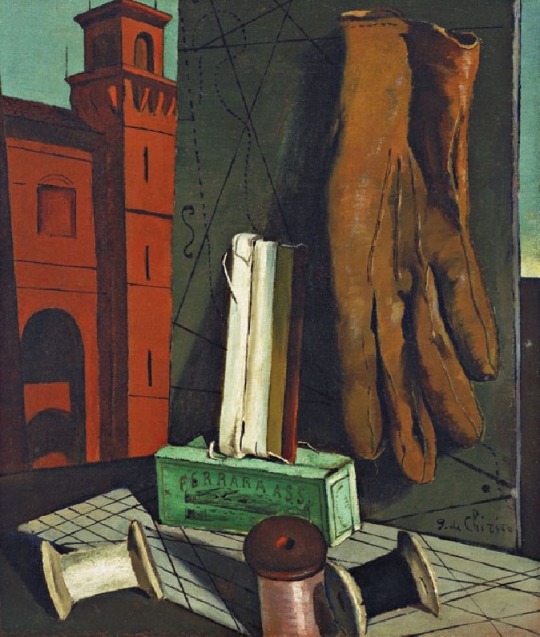


SENSI DELL’ARTE - di Gianpiero Menniti
IL TEMPO DEL RITORNO
Quelli dell'arte sono racconti brevi che racchiudono parole estese.
Indicano "storie" e non descrivono oggetti.
S'ispirano alla distinzione, chiarita da Dilthey, tra le scienze della natura e le scienze dello spirito: le prime penetrano la materia e la classificano, ma nulla affermano sulla storia di un oggetto.
Lo spirito, inteso come rappresentazione culturale, atto di "coscienze", è invece l'effetto di una vicenda che incrocia l'umano e da questo si lascia connotare.
La passione antiquaria propone un esempio di questa percezione dell'oggetto: il nuovo non possiede una storia, l'antico la evoca.
Solo così può essere compreso il "tempo vissuto" di Bergson e il suo rapporto con la libertà: le relazioni causali perdono il peso della necessità e muovono da infinite e incoercibili possibilità.
Nel corso del "secolo lungo", l'espressione artistica s'è assunta il ruolo di richiamo a questo statuto ontologico delle "cose" e di rifiuto d'ogni forma canonica, per rivendicare la differenza dal paradigma d'inclusione nell'ordine delle scienze di natura.
Giorgio de Chirico (1888 - 1978) ha declinato questo sentimento di rivalsa in tutte le sue opere, animandole di silenzi.
Una di queste, "I progetti della fanciulla", 1915, oggi al MoMA di New York, è l'apparire di sogni, di aneliti, di speranze, di pensieri, assorbiti negli oggetti della vita.
Questi divengono coscienza e formano il tempo del ritorno.
Il tempo circolare che segna la verità delle "cose".
#thegianpieromennitipolis#arte#arte contemporanea#arte italiana#giorgio de chirico#dilthey#henri bergson
6 notes
·
View notes
Video
youtube
Wilhelm Dilthey
6 notes
·
View notes
Text
Straight guys with boners and free videos of gay sexy young cumming A
Sensual Body and Pussy Cumshots Compilation
Hot teen huge and girl sucks own cock swallows Old brainy gentleman
Delicious angels tied and fucked real rough
Ma Copine Salope Adore Sucer
Red head teen anal creampie bossly Family Competition
Fervent teenie opens up soft snatch and gets deflorated
Mojando a Luisa Fernanda
Wild tattooed MILF drinks cum - German Goo Girls
Big titted Mintra is a smoking hot, Thai cock teaser
#cauterizes#geomancer#periodontia#videos#duratives#infusorioid#refurbish#Dilthey#pinnisect#sooyoung#intraspecies#footfault#kaross#algometer#jurisprudential#Mecosta#wampish#redfish#Brevicipitidae#buy
0 notes
Photo
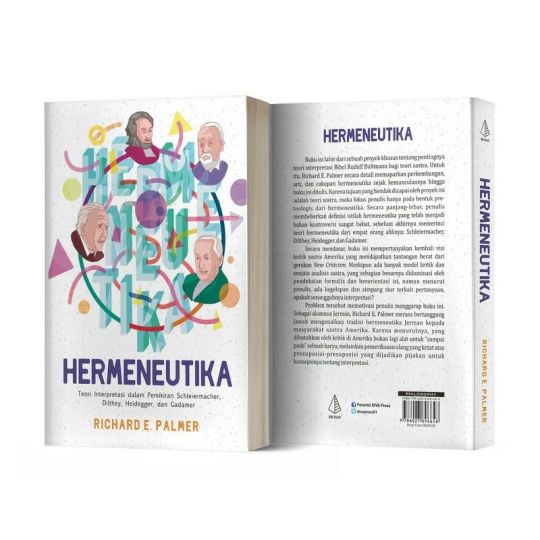
Buku ini lahir dari sebuah proyek khusus tentang pentingnya teori interpretasi Bibel Rudolf Bultmann bagi teori sastra. Untuk itu, Richard E. Palmer secara detail memaparkan perkembangan, arti, dan cakupan hermeneutika sejak kemunculannya hingga buku ini ditulis. Karena tujuan yang hendak dicapai oleh proyek ini adalah teori sastra, maka fokus penulis hanya pada bentuk pre-teologis dari hermeneutika. Secara panjang-lebar, penulis membeberkan definisi istilah hermeneutika yang telah menjadi bahan kontroversi sangat hebat, sebelum akhirnya memerinci teori hermeneutika dari empat orang ahlinya: Schleiermacher, Dilthey, Heidegger, dan Gadamer. Richard E. Palmer, Hermeneutika; Teori Interpretasi dalam Pemikiran Schleiermacher, Dilthey, Heidegger, dan Gadamer, Yogyakarta, Ircisod, Juni, 2022, 448 hlm, 100.000 #RichardePalmer #Hermeneutika #Schleiermacher #dilthey #Heidegger #Gadamer #Ircisod #Filsafat #teorisastra (at Jual Buku Sastra-JBS) https://www.instagram.com/p/Cffca61hs-r/?igshid=NGJjMDIxMWI=
0 notes
Photo

If I'm wise, I will walk away, and gladly...
But, sadly, I'm not wise, it's hard to talk away the mem'ries that you prize!
By looking in his eyes, will I see beyond tomorrow? (x)
Muchas veces me ayuda a visualizar la historia adjudicar canciones a los personajes o momentos de la historia. A mí me gustan mucho los musicales, entonces tiendo a pensar qué solo tendría cada personaje o qué dueto y, desde hace un tiempo, pienso que si Claire y Erika tuvieran un dueto definitivamente sería “In his eyes” del musical Jekyll & Hyde.
La canción la cantan dos mujeres que están enamoradas del mismo hombre, preguntándose si merece la pena seguir adelante con la relación a pesar de todo el dolor que puede traerles. Bien, obviamente Claire y Erika no están enamoradas del mismo hombre pero sí creo que pega muy bien a este momento de la historia, en el que ambas tienen que enfrentarse a tantas cosas y tienen tantas preguntas que hacerse.
Así, os dejo este pequeño graphic, que hacía mucho desde el último :D.
6 notes
·
View notes
Photo
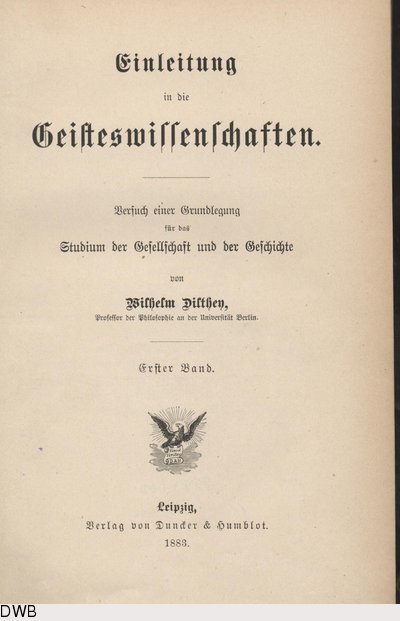
0 notes
Text
Philosophical Foundations of Personality Psychology: Wilhelm Dilthey
Words: 2200Reading time: 9 minutes
Wilhelm Dilthey, 1855Image Source
Wilhelm Dilthey (1833-1911) was a 19th-century historian and philosopher. His main concern and life project was with defining and bringing together the human sciences into a cohesive sphere (the human sciences are, for Dilthey, the humanities, the social sciences, psychology, and anthropology). However, it was also an attempt…
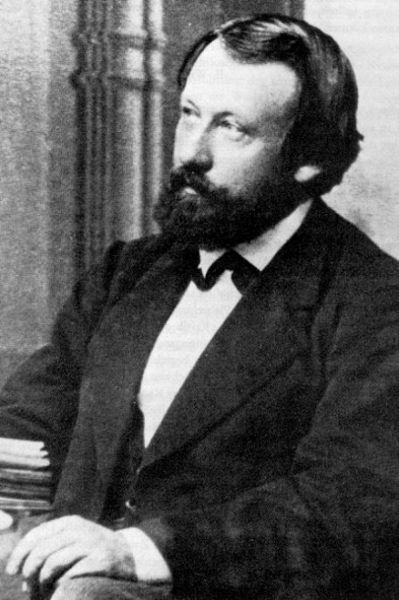
View On WordPress
#History of personality psychology#Human drives#Individuality#Personality Psychology#Philosophy of psychology#Philosophy of Society#Wilhelm Dilthey
1 note
·
View note
Text
Julian. Erstaunliches, wenn nach mehreren Generationen von Juristen aus diesem Geisteskorsett ein Physiker hervorgeht. Gestern Abendessen, der Szientist am Tisch. Diskussionen um die Frage, wie Erkenntnis entsteht. Verstehen und Erklären. Bitter macht der Bedeutungsverlust der Geschichte und der Texte.
0 notes
Text
🍃🕊🍃 Question 50: Religious Pluralism and different Interpretations of Religion
Question: Please explain what religious pluralism is and the difference between it and the interpretations of religion.
Pluralism is multiplicity. It has different meanings in the philosophy of religion, ethics, law, political science, etc. The common factor that holds true for all of these is to acknowledge multiplicity or plurality in contrast to unity or exclusivism. Religious pluralism means that felicity is not exclusively reserved for a particular religion or religious sect. Truth and felicity not being limited to a specific religion in its turn means that all religions have a certain amount of truth to them. As a result, following the laws of any of them can be a means for man to reach felicity and to gain salvation. The Acceptance of this viewpoint means that the battle of truth and falsehood that exists between religions ceases to exist. The enmity and war that we find between religions gives way to peace and solidarity.
🍃 Brief Answer
1. Pluralism is multiplicity. It has different meanings in the philosophy of religion, ethics, law, political science, etc. The common factor that is true for all of these is to acknowledge multiplicity and plurality as opposed to unity or exclusivism. Religious pluralism means that felicity is not exclusively reserved for a particular religion or religious sect.
2. Pluralism can conceivably be applied between various religions or between different sects of one religion.
3. From the point of view of Islam, religious pluralism is incorrect because we have clear proofs that Islam is the true religion and that the other religions cannot be on par with it. Also, the fact that the Noble Qur`an has not been tampered with and that Islam is the final and conclusive religion effectively amounts to the abrogation of the religions predating Islam.
4. The various interpretations of religion or “religious hermeneutics” is another branch of religious research. The followers of this school believe in the validity and effectiveness of all the presuppositions of every interpreter of religion when he attempts to understand a sacred text. In the various modern interpretations of religion there are numerous perspectives, the most important of which are held by Friedrich Schleiermacher, Wilhelm Dilthey, Martin Heidegger, and Hans-Georg Gadamer.
5. Even though the discussion of religious hermeneutics is a modern discussion in the philosophy of religion and was taken from the West, the fact remains that in depth discussions on the interpretation of sacred texts has a long history in the Islamic sciences, especially in the field of Usul.
6. In the aforementioned schools and areas of research, not enough importance has been placed on the principles by which we can truthfully judge the validity of the different interpretations of religion. In reality, this leads to a form of relativism in understanding.
7. Religious hermeneutics and religious pluralism are properly two separate categories, but hermeneutics can be seen to be one of the instances of religious pluralism and hence the bridge which links the two topics. In other words, we can explain the multiplicity of religions because it is possible that we can understand one thing in many different ways
8. The objection that can be levied against this view is that one cannot judge every interpretation to be correct. It cannot be denied that the understanding of human beings follows the rules of speech and conversation. While attempting to understand a text there are principles that are to be used such as: paying attention to the meaning of the speaker or writer, the system of words he is using, the language that he speaks, his attitude while speaking, his seriousness or his joviality, and the fact that he has definitely intended certain meanings from his text.
🍃 Detailed Answer
A Brief History of Religious Pluralism
Religious Pluralism was first born in the Christian world and in the last ten years was presented and propagated by John Hick (1992).
Religious pluralism can be considered between various religions in the sense that we consider them all to be true, or at least to all contain some element of truth. Or within any particular religion, various sects can be considered to be valid. For example, the Shi’ite and Sunni sects are two sects within the fold of Islam—each claiming to be the pure Islam. But from the point of view of religious pluralism, both of these groups can be valid, or it can be said that both sects contain some truth to them. In other words religious pluralism can be divided into inter-religious and intra-religious pluralism.
🍃 The intellectual foundations of religious
pluralism can be delineated as follows:
1. The differentiation between the kernel and the shell of religion—giving prominence to the kernel of religion, to the detriment of the shell. In this regards, the teachings, especially the mannerisms and the exoteric rituals, are usually considered to be the shell of religion.
2. This interpretation lays great emphasis on “revelatory” and religious experiences and, in principle, sums up religion as religious experience. Religious experience is naturally always different when it is being formally related or interpreted. This is because on the level of forms, various factors such as culture and intellectual perspectives come into play. In the end, the multiplicity of religions becomes a reflection of some common type of religious experience as it is seen through the mirror of various cultures.
3. This interpretation is a humanistic one. It holds that religions should stick to down to earth realities that are common instead of laying stress on matters of sublime doctrine; they should keep the latter for themselves.
4. All religions have one message and with a little analysis, the differences between them disappear. In reality, the differences between religions arise from the differences of interpretations and languages, and are not real.
5. This phenomenon is based on the difference between the “truth in itself” and the “truth as it appears to us.” In reality, there is an objective truth, but we do not have a perfect understanding of it. Yet the “truth as it appears to us” is a manifestation of this objective reality. The coming into contact of this [non-delimited] divine reality with [limited] man has meant that it has taken on different forms depending upon the differing conditions of man through the ages and in various cultures.
Aside from this, Allah (awj) has, in order to create an effective relationship, made his message to conform to the inner workings of every culture and era. It should not be forgotten that many serious objections could be levied against the aforementioned view, even though some of them (like the first) can be interpreted in such a way as to make it correct. For a more in depth and fuller explanation of the above, we suggest referring to the relevant books.
6. This explanation is a hermeneutical one. It is based on the belief that the presuppositions of every interpreter have a pivotal effect on his attempts to understand a sacred text. According to this viewpoint, the writer and the speaker are just like the interpreter–after the writer finishes the composition of a text he gives up his status as writer.
This view says that the text in itself does not have any meaning; rather it is the interpreter that gives meaning to the text by means of his presuppositions and his knowledge. To put it differently, the meaning that resides in any text is much like wax from which the mind of the interpreter forms different shapes according to his predisposition and mental acumen. So, the texts are not pregnant with meanings, rather they are, so to speak, hungry for meaning. It is the interpreters and the listeners that give meaning to texts.
The sixth viewpoint is the common denominator between religious pluralism and the hermeneutics of religious texts. It has some valid objections that we will now refer to.
The system of man’s understanding follows the laws of discourse and conversation. All sane people of the world follow those principles when conversing with one another. The following are principles of conversation: paying attention to the meaning of the speaker or writer, the system of words he is using, the language that he is speaking, his attitude while speaking, his seriousness or his joviality, and the fact that he has definitely intended certain meanings from his text. They are all principles that rational people use when speaking.
Even people who hold to the “interpretation” hypothesis outlined above cannot deny using these principles themselves. Of course when a text gives news of something, one must, according to the clues and the meanings of the words, strive to understand it. Also, because religious texts have abrogated laws, general and particular statements, unconditional and conditional sentences, etc. we must carefully examine the beginnings and the ends of each and every text before coming to a conclusion.
Therefore, in attempting to understand a text, certain presuppositions exist, like knowing the language of the speaker and the context, but there are also some presuppositions that prevent the listener from understanding it and one must stay away from those if one wants to understand the text.
🍃 A Review of Religious Pluralism
Aside from all the objections that can be raised against religious pluralism, one must not forget that according to us Muslims there are various sound proofs for the validity and truthfulness of Islam. With these proofs one cannot claim that all religions are equal. Some of these proofs are as follows: the reasonable nature of the teachings of Islam, the fact that Islamic texts are backed up by references, the un-tampered nature of the Noble Book of Muslims, the miraculous nature of the Qur`an, the comprehensiveness of the laws and their positive and practical nature.
Aside from these proofs a point that must not be lost sight of is the fact that Islam conclusively follows all previous religions. This is tantamount to the abrogation of the preceding religions.
🍃 The Various Interpretations of Religion
The various interpretations of religion or “religious hermeneutics” is another branch of religious research. The followers of this school believe in the validity and effectiveness of all the presuppositions of every interpreter of religion when he attempts to understand a sacred text. In the various modern interpretations of religion there are numerous perspectives, the most important of which will be briefly outlined below:
1. The view of Friedrich Schleiermacher: Hermeneutics is a method for interpreting religious texts and helps avoiding misunderstandings that may arise from the time separating the interpreter and the text itself.
2. The view of Wilhelm Dilthey: Hermeneutics is a theory used in the human sciences in contrast to the natural sciences. He believes that history interferes in the interpretation of an interpreter.
3. The view of Martin Heidegger: Hermeneutics makes clear the essence and nature of understanding and its conditions. He changed hermeneutics from a method to a philosophy (or the knowledge of being). Based on a theory relating to existence, he took hermeneutics to be the exposition of the quiddity and essence of understanding and its conditions.
4. The view of Hans-Georg Gadamer: Hermeneutics is the [study of the] confluence of different levels and perspectives. He presented the ontology of Heidegger as an epistemology and thereby established an “ontology of understanding.” The hermeneutics of Gadamer is for the most part an exposition of the process of the realization of understanding and has no concern with the correctness or incorrectness of understanding.
According to him, the mind of the interpreter is filled with beliefs and information that define his perspective. This perspective always moves along with the interpreter and changes or reaches an equilibrium as he continues to refer to the world and the things in it. The act of interpretation is the confluence of various perspectives and horizons of knowledge within the interpreter; it is the connection of these “horizons” and perspectives with one another.
The job of hermeneutics is to unite these perspectives and horizons and to create a dialogue between the interpreter and the text. What causes differences between various interpretations is the emphasis that is put upon certain presuppositions and horizons of thought over others. According to Gadamer, there is no one absolute viewpoint that could comprehend and embrace all possible perspectives.
Rather every act of interpretation is a specific perspective in itself. Therefore an unbiased and objective interpretation is not possible and an all-inclusive, definitive interpretation just does not exist. In reality, according to Gadamer, it is not important to discover the “real” intentions of the writer, because in the end, we cannot know the text to be a true representation of the mind of the writer.
🍃 A Review of Gadamer
We will now briefly allude to some objections that can be raised against Gadamer, seeing as his views have had more of an effect and have been used in theological and philosophical discussions quite often in recent years, and are therefore more important.
1. Why should we not pay attention to the intent of the writer? Should not the interpreter strive to differentiate between the predispositions of his own understanding and that of the writer?
2. Gadamer’s perspective leads to a sort of relativism, blurring or removing the distinction between correct and incorrect understanding. This is a kind of relativism that resembles that of Kant.
3. We can question the universality of Gadamer’s view and we can go on to hold that it is possible to avoid the effects of certain presuppositions and prejudgments.
4. If every understanding needs certain presuppositions, then in their turn those presuppositions are not exceptions to this rule; and this leads logically to an infinite or circular regress of presuppositions.
🍃 Some Points Worth Mentioning
Regarding The Different Interpretations
Of Religion
Until now we have explained hermeneutics and the different interpretations of religion, and we have also touched upon the different views regarding it. We have especially covered the viewpoints of Gadamer, mainly due to the fact that they had a far-reaching effect on his contemporaries. In order to complete the discussion we will remind our readers of certain important points:
First, although the subject of different interpretations of religion has largely been taken from modern philosophical hermeneutics, it should be noted that the discussion on the interpretation and understanding of religion has a long history in the Islamic sciences. This is especially the case in the fields of usul, Qur`anic commentary, and theoretical mysticism. Hence, the different kinds of intellectual, textual, symbolic, and mystical commentaries of the Qur`an, the commentary of the Qur`an by the Qur`an, the commentary by one’s own opinion, semantics, and the method of obtaining the apparent meaning of the words of a text, all serve to show the presence of this perspective in traditional Islamic scholarship.
Secondly, since the religious texts played an important part in shaping the culture of Muslims and in the formation of the different Islamic sciences, it is possible to say that investigations into the method of interpreting religious texts play a pivotal role in theological discussions. It is largely due to this that the arguments surrounding the different interpretations of religion have provoked much debate in this area.
Most of the views that have been put forward by Arab and non-Arab intellectuals in recent years have been for the most part borrowed from the hermeneutic philosophy of Gadamer. These intellectuals have tried to use the hermeneutic philosophy and methodology in the interpretation of the Noble Qur`an and the traditions, and in trying to understand religion in general. Some of their views in this regard can be summed up as follows:
1. Religion and the religious texts are quiet and do not speak to us.
2. The presuppositions of interpreters have an effect in their interpretations of the texts.
3. No interpreter can grasp the essence of any religion.
4. There is no one pure perspective. Rather we all use interpretations that are mixtures of truth and falsehood.
The third point is this: In the view of many of the thinkers mentioned above, no importance should be given to principles by which we can judge the various interpretations of religion. No effort is exerted towards separating the incorrect readings from the correct ones. In other words, according to this stance, all the different understandings are equal.
On the contrary and in line with the religious principles and viewpoints that are still prevalent in the traditional world, any interpreter must strive to separate the predispositions of his thought from that of the author of the text. He must strive to correct his line of thought and achieve a concordance with the intentions of the writer by using certain principles. If he does not do this, his views will lead not only to the relativity of the understanding of religion but also to the relativity of the methodology of understanding.
According to the views of Islamic scholars, the different understandings of religious statements are an unavoidable phenomena but this difference of understanding is a matter that is regulated by certain principles and laws, many of which have been clearly enunciated by the religious tradition itself.
The fourth and final point: According to what we have just said, the thought of the followers of religious hermeneutic philosophy and the different interpretations of religion revolves around the interpreter and sees him to be central. While on the other hand, the view of Islamic scholars revolves around the author and they attempt to find his original intentions (in the case of religion, the author is either Allah or one whom He sends). In this approach, the interpreter looks through the text—the Qur`an or the traditions—to the intentions of the author, allowing it to be called a “text centred” approach. It aims at revealing the intentions of the author or speaker as correctly as possible and uses all the means that can possibly assist him in this regard.
🍃🌺🍃~*~⛲️~*~🍃🌺🍃
🍃🕊🍃 al-Islam.org 🍃🕊🍃
.

#ahlulbayt#islam and shia#imam hussain#imam mahdi#fatima#imam ali#prophet muhammad#ahlulbait#fatima zahra#imam husayn
3 notes
·
View notes
Text
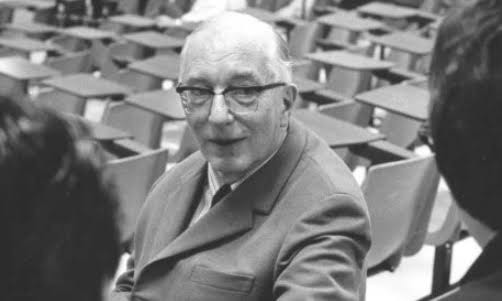
Frases de Eric Voegelin
Reunidas, traduzidas e compiladas por Cláudio Suenaga.
Eric Voegelin nasceu em Colônia em 1901 e trocou a Alemanha por Viena quando tinha 9 anos. Ele se formou em direito e ciência política, mas sua verdadeira educação, ele disse mais tarde, veio da leitura de Karl Kraus (1874–1936), o mordaz jornalista vienense cujos ataques à hipocrisia e à vulgaridade de seu tempo moldaram a geração que atingiu a maioridade por volta da Primeira Guerra Mundial. O distanciamento de Voegelin de sua pátria austríaca preparou-o para dar um passo incomum para um jovem acadêmico europeu. Em 1924 viajou para os Estados Unidos com uma bolsa e passou dois anos estudando em universidades americanas, frequentando os cursos de John Dewey (1859–1952) em Columbia e descobrindo as obras de George Santayana (1863–1952). Essa experiência inspirou seu primeiro livro, On the Form of the American Mind (1928), que deve mais a pensadores alemães como Max Scheler (1874–1928) e Wilhelm Dilthey (1833–1911) do que a pragmatistas americanos como Dewey. Ainda assim, a experiência americana de Voegelin teve grandes efeitos. Quando voltou a Viena para aceitar um cargo na universidade, trazia consigo um ódio permanente ao racismo e as vergonhosas justificativas intelectuais dele. Depois que trabalhos pseudocientíficos apoiando o racismo biológico dos nazistas começaram a circular na Áustria, ele os atacou em dois livros publicados pouco depois de Hitler tomar o poder. Esses e outros de seus escritos fizeram dele um alvo escolhido pelos nazistas austríacos, que ordenaram sua prisão imediatamente após o Anschluss em 1938. Ele escapou de trem enquanto a polícia revistava seu apartamento.
Saiba mais sobre a vida e a obra de Eric Voegelin aqui:
“Um governo tem o dever de preservar a ordem, bem como a verdade que representa; quando um líder gnóstico aparece e proclama que Deus ou progresso, raça ou dialética o ordenou para se tornar o governante existencial, um governo não deve trair sua confiança e abdicar. E esta regra não sofre exceção para governos que operam sob uma constituição democrática e uma declaração de direitos. O juiz Jackson, em sua discordância no caso Terminiello, formulou o seguinte: a Declaração de Direitos não é um pacto suicida. Um governo democrático não deve se tornar cúmplice de sua própria derrubada, deixando que os movimentos gnósticos cresçam prodigiosamente sob a proteção de uma interpretação turva dos direitos civis; e se, por inadvertência, tal movimento chegou ao perigo de capturar a representação existencial pela famosa “legalidade” das eleições populares, um governo democrático não deve se curvar à “vontade do povo”, mas reprimir o perigo força e, se necessário, quebrar a letra da constituição para salvar seu espírito”.
― Eric Voegelin, A Nova Ciência da Política, 1952.
“A government has the duty to preserve the order as well as the truth which it represents; when a Gnostic leader appears and proclaims that God or progress, race or dialectic, has ordained him to become the existential ruler, a government is not supposed to betray its trust and to abdicate. And this rule suffers no exception for governments which operate under a democratic constitution and a bill of rights. Justice Jackson in his dissent in the Terminiello case formulated the point: the Bill of Rights is not a suicide pact. A democratic government is not supposed to become an accomplice in its own overthrow by letting Gnostic movements grow prodigiously in the shelter of a muddy interpretation of civil rights; and if through inadvertence such a movement has grown to the danger point of capturing existential representation by the famous “legality” of popular elections, a democratic government is not supposed to bow to the “will of the people” but to put down the danger by force and, if necessary, to break the letter of the constitution in order to save its spirit.”
― Eric Voegelin, The New Science of Politics, 1952.
— — — — — — — — — — — — — — — — — — — — — — — — —
“O uso do método como critério da ciência abole a relevância teórica. Em consequência, todas as proposições relativas aos fatos serão promovidas à dignidade da ciência, independentemente de sua relevância, desde que resultem de um correto uso de método. Sendo o oceano dos fatos infinito, torna-se possível uma prodigiosa expansão da ciência no sentido sociológico, dando emprego a técnicos cientificistas e levando à fantástica acumulação de conhecimento irrelevante através de imensos “projetos de pesquisa” cuja característica mais interessante é o gasto quantificável que entrou em sua produção.”
― Eric Voegelin, A Nova Ciência da Política, 1952.
“The use of method as the criterion of science abolishes theoretical relevance. As a consequence, all propositions concerning facts will be promoted to the dignity of science, regardless of their relevance, as long as they result from a correct use of method. Since the ocean of facts is infinite, a prodigious expansion of science in the sociological sense becomes possible, giving employment to scientistic technicians and leading to the fantastic accumulation of irrelevant knowledge through huge “research projects” whose most interesting features is the quantifiable expense that has gone into their production.”
― Eric Voegelin, The New Science of Politics, 1952.
— — — — — — — — — — — — — — — — — — — — — — — — —
“O problema de um eidos na história, portanto, surge apenas quando uma realização transcendental cristã se torna imanentizada. Tal hipóstase imanentista do eschaton, no entanto, é uma falácia teórica”.
― Eric Voegelin, A Nova Ciência da Política, 1952.
“The problem of an eidos in history, hence, arises only when a Christian transcendental fulfillment becomes immanentized. Such an immanentist hypostasis of the eschaton, however, is a theoretical fallacy.”
― Eric Voegelin, The New Science of Politics, 1952.
— — — — — — — — — — — — — — — — — — — — — — — — —
“Quando Deus estiver invisível atrás do mundo, o conteúdo do mundo se tornará novos deuses; quando os símbolos da religiosidade transcendente são banidos, novos símbolos se desenvolvem a partir da linguagem mundana da ciência para tomar seu lugar. Como a ecclesia cristã, a comunidade mundana também tem seu apocalipse; ainda assim, os novos apocalípticos insistem que os símbolos que criam são julgamentos científicos.”
― Eric Voegelin, Modernidade sem Limites: Religiões Políticas; A Nova Ciência da Política; e Ciência, Política e Gnosticismo.
“When God is invisible behind the world, the contents of the world will become new gods; when the symbols of transcendent religiosity are banned, new symbols develop from the inner-worldly language of science to take their place. Like the Christian ecclesia, the inner-worldly community has its apocalypse too; yet the new apocalyptics insist that the symbols they create are scientific judgements.”
― Eric Voegelin, Modernity without Restraint: Political Religions; The New Science of Politics; and Science, Politics and Gnosticism.
— — — — — — — — — — — — — — — — — — — — — — — — —
“Os seres humanos vivem em sociedade política com todos os traços do seu ser, desde os traços físicos aos espirituais e religiosos. Apresentamos apenas exemplos das áreas de cultura mediterrânica e europeia ocidental, mas a tese é universal e aplica-se também às formas políticas. A comunidade política está sempre integrada no contexto global da experiência do homem do mundo e de Deus, independentemente de a esfera política ocupar um nível subordinado na ordem divina da hierarquia do ser ou de ser ela mesma divinizada. A linguagem da política é sempre entremeada pelos êxtases da religiosidade e, assim, torna-se um símbolo no sentido conciso ao deixar que experiências preocupadas com os conteúdos do mundo sejam permeadas por experiências transcendentais-divinas”.
― Eric Voegelin, Modernidade sem Limites: Religiões Políticas; A Nova Ciência da Política; e Ciência, Política e Gnosticismo.
“Humans live in political society with all traits of their being, from the physical to the spiritual and religious traits. We have only presented examples from the Mediterranean and Western European culture areas, but the thesis is universal and also applies to the political forms in the East. The political community is always integrated in the overall context of man’s experience of the world and God, irrespective of whether the political sphere occupies a subordinate level in the divine order of the hierarchy of being or whether it is deified itself. The language of politics is always interspersed with the ecstasies of religiosity and, thus, becomes a symbol in the concise sense by letting experiences concerned with the contents of the world be permeated with transcendental-divine experiences.”
― Eric Voegelin, Modernity without Restraint: Political Religions; The New Science of Politics; and Science, Politics and Gnosticism.
— — — — — — — — — — — — — — — — — — — — — — — — —
“A filosofia brota do amor de ser; é o esforço amoroso do homem perceber a ordem do ser e sintonizar-se com ela. A Gnose deseja domínio sobre o ser; para assumir o controle do ser, o gnóstico constrói seu sistema. A construção de sistemas é uma forma gnóstica de raciocínio, não filosófica.”
― Eric Voegelin, Ciência, Política e Gnosticismo in Obras Reunidas, vol. 5: Modernidade sem restrições, p.273.
“Philosophy springs from the love of being; it is man’s loving endeavor to perceive the order of being and attune himself to it. Gnosis desires dominion over being; in order to seize control of being the Gnostic constructs his system. The building of systems is a gnostic form of reasoning, not a philosophical one.”
― Eric Voegelin, Science, Politics, and Gnosticism in The Collected Works, Vol. 5: Modernity Without Restraint, p.273.
— — — — — — — — — — — — — — — — — — — — — — — — —
“A natureza de uma coisa não pode ser mudada; quem tenta “alterar” sua natureza a destrói. O homem não pode se transformar em um super-homem; a tentativa de criar um super-homem é uma tentativa de assassinar o homem. Historicamente, o assassinato de Deus é não seguido pelo super-homem, mas pelo assassinato do homem: o deicídio dos teóricos gnósticos é seguido pelo homicídio dos praticantes revolucionários.”
― Eric Voegelin, Ciência, Política e Gnosticismo, 1959.
“The nature of a thing cannot be changed; whoever tries to “alter” its nature destroys the thing. Man cannot transform himself into a superman; the attempt to create a superman is an attempt to murder man. Historically, the murder of God is not followed by the superman, but by the murder of man: the deicide of the gnostic theoreticians is followed by the homicide of the revolutionary practitioners.”
― Eric Voegelin, Science, Politics, and Gnosticism, 1959.
— — — — — — — — — — — — — — — — — — — — — — — — —
A repetição ajuda!
“… a desordem espiritual de nosso tempo, a crise civilizacional de que todos falam tão prontamente, não deve de forma alguma nascer como um destino inevitável; que, ao contrário, cada um possui os meios de superá-la em sua própria vida… E nosso esforço deve indicar não só os meios, mas também como empregá-los. Ninguém é obrigado a tomar parte nas crises espirituais da sociedade, ao contrário, todos são obrigados a evitar a loucura e viver sua vida em ordem. “
― Eric Voegelin, Ciência, Política e Gnosticismo, 1959.
Repetita iuvant!
“…the spiritual disorder of our time, the civilizational crisis of which everyone so readily speaks, does not by any means have to be born as an inevitable fate; that, on the contrary, everyone possesses the means of overcoming it in his own life. And our effort should not only indicate the means, but also how to employ them. No one is obliged to take part in the spiritual crises of society; on the contrary, everyone is obliged to avoid the folly and live his life in order.”
― Eric Voegelin, Science, Politics, and Gnosticism, 1959.
— — — — — — — — — — — — — — — — — — — — — — — — —
“O Deus que brinca com o homem como uma marionete não é o Deus que se torna homem para ganhar sua vida sofrendo sua morte. O movimento que engendrou a história salvadora da divina encarnação, morte e ressurreição como resposta à questão da vida e a morte é consideravelmente mais complexa do que a filosofia clássica; é mais rica pelo fervor missionário de seu universalismo espiritual, mais pobre por sua negligência do controle noético; mais ampla por seu apelo à humanidade inarticulada do homem comum; mais restrita por seu viés contra o articulado sabedoria dos sábios; mais imponente por seu tom imperial de autoridade divina; mais desequilibrado por sua ferocidade apocalíptica, que leva a conflitos com as condições de existência do homem em sociedade; mais compacto por sua generosa absorção de estratos anteriores da imaginação mítica, especialmente por a recepção da historiogênese israelita e a exuberância da operação de milagres; mais diferenciada pela experiência intensamente articulada de ação amorosa-divina na iluminação da existência com a verdade. A compreensão dessas complexidades pelas quais o movimento do evangelho difere do movimento da filosofia clássica, porém, não pode ser avançada usando tais dicotomias tópicas como filosofia e religião, metafísica e teologia, razão e revelação, razão natural e sobrenaturalismo, racionalismo e irracionalismo, e assim por diante.”
― Eric Voegelin, CW VOL 12, O Evangelho e a Cultura, § III, p. 189.
“The God who plays with man as a puppet is not the God who becomes man to gain his life by suffering his death. The movement that engendered the saving tale of divine incarnation, death, and resurrection as the answer to the question of life and death is considerably more complex than classic philosophy; it is richer by the missionary fervor of its spiritual universalism, poorer by its neglect of noetic control; broader by its appeal to the inarticulate humanity of the common man; more restricted by its bias against the articulate wisdom of the wise; more imposing through its imperial tone of divine authority; more imbalanced through its apocalyptic ferocity, which leads to conflicts with the conditions of man’s existence in society; more compact through its generous absorption of earlier strata of mythical imagination, especially through the reception of Israelite historiogenesis and the exuberance of miracle working; more differentiated through the intensely articulate experience of loving-divine action in the illumination of existence with truth. The understanding of these complexities by which the gospel movement differs from the movement of classic philosophy, though, cannot be advanced by using such topical dichotomies as philosophy and religion, metaphysics and theology, reason and revelation, natural reason and supernaturalism, rationalism and irrationalism, and so forth.”
― Eric Voegelin, CW VOL 12, The Gospel and Culture, § III, p. 189.
— — — — — — — — — — — — — — — — — — — — — — — — —
“A Filiação divina não é revelada por meio de uma informação oferecida por Jesus, mas por meio da resposta de um homem à presença plena em Jesus do mesmo Deus Desconhecido por cuja presença ele é movido incoativamente em sua própria existência. O Deus Desconhecido entra no drama da passagem do reconhecimento de Pedro como a terceira pessoa. A fim de estabelecer a distinção entre revelação e informação, bem como evitar o descarrilamento de uma para a outra, o episódio termina com o encargo de Jesus aos discípulos “para não dizer a ninguém que ele era o Cristo” (Mateus 16:20).”
― Eric Voegelin, CW VOL 12, The Gospel and Culture, § III, pp.201–202.
“The divine Sonship is not revealed through an information tendered by Jesus, but through a man’s response to the full presence in Jesus of the same Unknown God by whose presence he is inchoatively moved in his own existence. The Unknown God enters the drama of Peter’s recognition as the third person. In order to draw the distinction between revelation and information, as well as to avoid the derailment from one to the other, the episode closes with the charge of Jesus to the disciples “to tell no one that he was the Christ”(Matt. 16:20).”
― Eric Voegelin, CW VOL 12, The Gospel and Culture, § III, pp.201–202.
— — — — — — — — — — — — — — — — — — — — — — — — —
“A política gnóstica é autodestrutiva na medida em que seu desrespeito pela estrutura da realidade leva a uma guerra contínua.”
“Gnostic politics is self-defeating in so far as its disregard for the structure of reality leads to continuous warfare.”
— — — — — — — — — — — — — — — — — — — — — — — — —
“Este sistema de guerras em cadeia só pode terminar de duas maneiras: ou resultará em horríveis destruições físicas e concomitantes mudanças revolucionárias da ordem social além de suposições razoáveis; ou, com a mudança natural de gerações, levará ao abandono do sonho gnóstico antes que o pior aconteça.”
“This system of chain wars can end only in two ways: either it will result in horrible physical destructions and concomitant revolutionary changes of social order beyond reasonable guesses; or, with the natural change of generations, it will lead to the abandoning of Gnostic dreaming before the worst has happened.”
— — — — — — — — — — — — — — — — — — — — — — — — —
“O interesse público deslocou-se da natureza do homem para a natureza da natureza e para as perspectivas de dominação que sua exploração abriu; e a perda de interesse se transformou até em ódio quando a natureza do homem se mostrou resistente às mudanças sonhadas por intelectuais que querem somar o domínio da sociedade e da história ao domínio da natureza”.
“The public interest has shifted from the nature of man to the nature of nature and to the prospects of domination its exploration opened; and the loss of interest even turned to hatred when the nature of man proved to be resistant to the changes dreamed up by intellectuals who want to add the lordship of society and history to the mastery of nature.”
— — — — — — — — — — — — — — — — — — — — — — — — —
“As pessoas podem deixar que o conteúdo do mundo cresça de tal forma que o mundo e Deus desapareçam atrás dele, mas não podem eliminar a problemática de sua existência. Ele vive em cada alma individual, e quando Deus se torna invisível atrás do mundo, então o conteúdo do mundo se torna novos deuses; quando os símbolos da religiosidade supramundana são banidos, novos símbolos desenvolvidos a partir da linguagem científica interior mundana tomam seu lugar”.
“Die Menschen können den Weltinhalt so anwachsen lassen, daß Welt und Gott hinter ihm verschwinden, aber sie können nicht die Problematik ihrer Existenz aufheben. Sie lebt in jeder Einzelseele weiter, und wenn Gott hinter der Welt unsichtbar geworden ist, dann werden die Inhalte der Welt zu neuen Göttern; wenn die Symbole der überweltlichen Religiosität verbannt werden, treten neue, aus der innerweltlichen Wissenschaftssprache entwickelte Symbole an ihre Stelle.”
— — — — — — — — — — — — — — — — — — — — — — — — —
Collected Works of Eric Voegelin #5
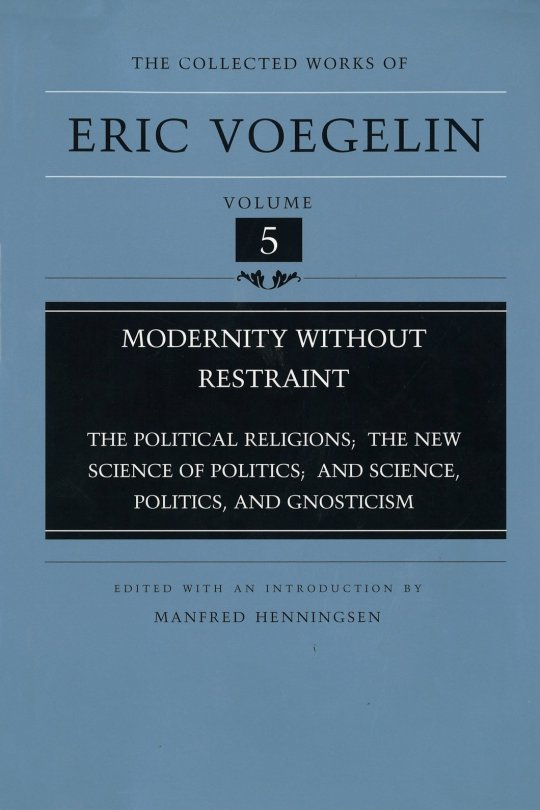
Modernity without Restraint: Political Religions; The New Science of Politics; and Science, Politics and Gnosticism
Eric Voegelin, Manfred Henningsen (Editor)
Publicados juntos pela primeira vez no volume A Religião como Política, A Nova Ciência da Política; e Ciência, Política e Gnosticismo, foi publicado pela primeira vez em 1938 em Viena, o ano da emigração forçada de Voegelin da Áustria para os Estados Unidos Estados. The New Science of Politics foi escrito em 1952 e estabeleceu a reputação de Voegelin como um filósofo político na América. Ciência, política e gnosticismo foi a palestra inaugural de Voegelin na Universidade de Munique em 1958 e o apresentou ao público intelectual da Alemanha Ocidental.
Embora esses livros tenham sido escritos durante circunstâncias históricas notavelmente diferentes da vida de Voegelin, todos os três apresentam uma análise da civilização ocidental moderna que perdeu seus fundamentos espirituais e é desafiada por várias convicções ideológicas. Voegelin critica nesses textos uma “modernidade sem freio”. É uma modernidade com características hegelianas, marxistas, nietzscheanas, heideggerianas, positivistas, fascistas e outras predominantemente alemãs. O autor confronta essa modernidade com significado ocidental tal como surgiu na Grécia antiga, Roma, Israel e no cristianismo e se transformou na Idade Média européia, no Renascimento italiano e na formação política anglo-americana.
Este volume três em um investiga as complicações intelectuais e espirituais da modernidade, traçando sua evolução desde as civilizações antigas até o século XX. Em sua nova introdução substancial, Manfred Henningsen explora o pano de fundo experimental que motivou as análises teóricas de Voegelin e a nova relevância que seu trabalho ganhou nos últimos anos com o colapso inesperado do socialismo de estado na Alemanha Oriental, Europa Oriental e União Soviética. Modernity without Restraint será um valioso acréscimo à história intelectual e aos estudos de Voegelin.
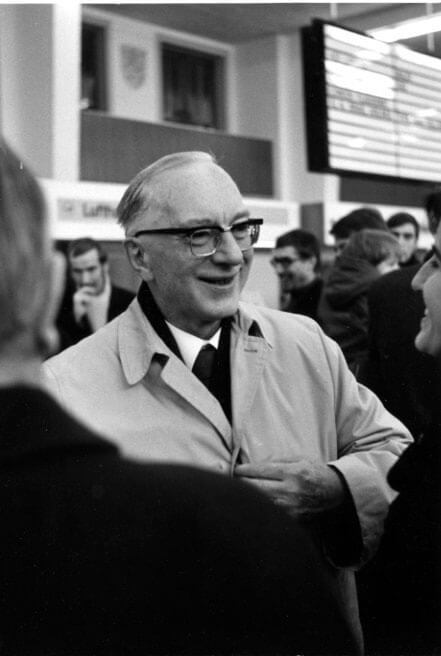
Cláudio Suenaga é mestre em História pela Universidade Estadual Paulista (Unesp), onde defendeu a primeira dissertação de mestrado sobre o Fenômeno OVNI no Brasil. Colaborador de inúmeras revistas e escritor com cinco livros publicados, milita como jornalista investigativo à caça de civilizações desaparecidas, cidades perdidas, monumentos megalíticos, tecnologia avançada antiga, fenômenos ufológicos, paranormais, milagrosos e sobrenaturais, seitas messiânicas, milenaristas e satânicas, sociedades secretas e todo tipo de teorias conspiratórias e mistérios em geral.
Ajude-me no Patreon: https://www.patreon.com/suenaga
Inscreva-se no meu Canal no YouTube: https://www.youtube.com/ClaudioSuenaga
Site Oficial: https://claudiosuenaga.yolasite.com
Blog Oficial: https://www.claudiosuenaga.com.br/
Facebook (perfil): https://www.facebook.com/ctsuenaga
Facebook (página Expondo a Matrix): https://www.facebook.com/clasuenaga
Instagram: https://www.instagram.com/claudiosuenaga
Pinterest: https://br.pinterest.com/claudiosuenaga
Twitter: https://twitter.com/suenaga_claudio
GETTR: https://gettr.com/user/suenaga
LINKS PARA ADQUIRIR OS MEUS LIVROS
Contatados: Emissários das Estrelas, Arautos de uma Nova Era ou a Quinta Coluna da Invasão Extraterrestre?
50 Tons de Greys: Casos de Abduções Alienígenas com Relações Sexuais — Experiências Genéticas, Rituais de Fertilidade ou Cultos Satânicos?
Illuminati: A Genealogia do Mal
Corona V de Vorazes: A Pandemia da Revolução 4.0
As Raízes Hebraicas da Terra do Sol Nascente: O Povo Japonês Seria uma das Dez Tribos Perdidas de Israel?
2 notes
·
View notes
Text
Antropología filosófica
Es la disciplina filosófica que investiga los problemas entorno al origen y esencia del hombre.
Siglo XX: Texto “El puesto del hombre en el cosmos” por Max Scheler
La filosofía nace en la Grecia clásica.
ANTROPOS -> HOMBRE
LOGIA -> TRATADO
“tratado sobre el hombre”
Problema del origen: ¿de dónde venimos? Problema de la esencia: ¿quiénes somos?
El problema del origen:

*Filosofía Agustiana:
Dios: Es el bien supremo (SER)
NO-SER: Mal. No existe entidad maligna.
Dios tiene un plan para la humanidad: Providencialismo
Dios ilumina el alma del hombre con la verdad: Doctrina de la iluminación.
Dios ha creado el mundo a partir de la NADA (CREATIO EX NIHILO)
El hombre posee el LIBRE ALBEDRIO por ello es posible el mal moral
*Evolucion del hombre: TRABAJO
Fue el filosofo F. Engels en su texto “El papel del trabajo en la transformación del mono en hombre”
-Filosofia: Materialismo dialectico y su base materialismo histórico (K. Marx y F. Engels: ideología alemana)
El problema de la esencia:
La pregunta es: ¿quiénes somos?
Definición tradicional: “El hombre es un animal político” ARISTOTELES
Definición pesimista: “El hombre es una enfermedad para la tierra” FEDERICO NIETZCHE
Definicion optimista: “El hombre nace bueno, la sociedad lo corrompe” JEAN JACQUES ROSSEAU
Dualismo antropologico: “El hombre posee un res- extenso y un res cogitans” RENE DESCARTES
TEORIAS ANTROPOLOGICAS:
El naturalismo: Sostiene que el hombre es un producto natural y biológico. Rep: Darwin, Nietzsche
Espiritualismo: Sostiene que la esencia del hombre proviene de la chispa divina o alma. Rep: San Agustín, Platón, Bergson.
Historicismo: Sostiene que el hombre es un ser netamente producido por la historia de sus civilizaciones y culturas. Rep: Wilhelm Dilthey.
Simbolismo: Sostiene que la esencia del hombre se manifiesta en la comprensión del mundo a través de los códigos de interpretación humana. Rep: Ernest Cassirer.
Existencialismo: Sostiene que el hombre no posee esencia sino existencia. Por lo tanto, el hombre es libre, o mejor dicho es responsable de sus actos. Rep: Jean Paul Sartre. SER-PARA SI: El hombre es un ser que se está creando, vive según su conciencia. VIDA AUTENTICA vs VIDA INAUTENTICA (no aceptar dicha condición). SER-EN SI: Una cosa, ya definida y por lo tanto estática. Ejm: roca, un perro.
Marxismo: Sostiene que el hombre es un ser eminentemente social y reproducido por nuestras relaciones económicas de producción y/o condiciones materiales de subsistencia. Rep: Karl Marx, Federico Engels.
Estructuralismo: Sostiene que en el hombre pesa mas lo cultural como forma de estructura dinámica de creación de valores, creencia y formas de comunicación, por lo cual genera lo que llamamos conciencia. Rp: Michel Foucault
1 note
·
View note
Text
A ciência política como hermenêutica
A relação da política com a linguagem remonta a Aristóteles. O uso da palavra, especificidade do zoon politikon, define a própria condição plítica do homem, um ser naturalmente dotado de condições para comunicar noções sobre o justo e o injusto. O homem político, (e hoje também bem como a mulher política), fala para seus iguais e, portanto, compartilha um conjunto de convenções que possibilitam o entendimento mútuo. Ainda no paradigma aristotélico, a ciência política consiste no estudo dos modos pelos quais a pólis se organiza e realiza, ou não, princípios de justiça vinculados à noção do comum, em oposição aos particularismos. Embora dissociadas, a dimensão normativa e empírica da política são complementares.
Em contraste com o paradigma aristotélico, o que se tem chamado de "nova ciência política" recusa-se a tomar o objeto político em sua dimensão dialógica/linguística. Inspirada pelas ciências naturais e pela economia e psicologia, ela almeja descrever e explicar a política como coisa, isto é, como um fenômeno quantificável e cujos enunciados podem ser verificados pelo levantamento de dados empíricos mensuráveis. Assim, podemos entender a dinâmica de funcionamento de um parlamento sem qualquer referência às ideias, princípios, conceitos e falas que ali têm lugar. Não é objeto deste tipo de ciência política os princípios de justiça e como cada parte da comunidade os entende e os reivindica no espaço público. O "real" da política se manifesta, por exemplo, nos padrões de votação nas assembleias ou na dinâmica que o governo e oposição estabelecem com base em regras explícitas e implícitas que determinam o resultado do jogo político.
Quais são as perdas cognitivas que esse paradigma, a meu ver válido, porém não exclusiva da ciência política, produz? Como podemos propor uma forma alternativa de conhecimento político cujo modelo não sejam as ciências da natureza, mas, para retomar uma noção cara a Dilthey, uma ciência do espírito, cujo objetivo visa não a explicação típica das ciências da natureza e o estabelecimento de leis e padrões nomológicos empiricamente verificáveis, mas, ao contrário, a compreensão, a explicitação do sentido da ação humana em sua relação com determinados valores. Como esse trabalho hermeneutico de tradução e explicitação pode assumir uma prática científica rigorosa, sem contudo, confundir-se, com as normas positivista da ciência?
A política como texto
Uma ciência política hermeneutica tomar o objetio política como texto e não como physis. Parte-se da premissa que a política não se resume a um conjunto de estratégias para alcançar o poder (o que é poder?), tampouco se limita à esfera institucional do Estado; ela extravasa essas dimensões, pois lida com a linguagem e os valores nela inscritos. Um cientista político deve se perguntar sobre quais são os valores e princípios mobilizados em uma dada comunidade política e como estes orientam a ação de grupos, direta ou indiretamente, envolvidos nesta atividade. A linguagem política não é uma coisa a ser quantificada, tampouco um comportamento que pode ser separado dos valores que os próprios sujeitos veiculam. Ela precisa ser interpretada e traduzida.
Uma ciência política de inspiração naturalista, a meu ver, é desprovida de instrumentos para pensar uma declaração como a de um deputado em defesa da tortura ou de um torturador; ao passo que uma ciência política hermenêutica é capaz de situar este ato de fala em sua relação com os valores e princípios que organizam uma dada comunidade política particular.
Gadamer destaca como o trabalho hermenêutico envolve um movimento circular entre o particular e o todo. O sentido de um enunciado em um texto, uma frase por exemplo, depende de sua relação com o texto como um todo, no qual aquela frase está escrita. De modo análogo, podemos pensar eventos políticos como a referida fala abjeta do deputado em relação ao conjunto dos valores políticos a que essa intervenção está relacionada. O analista, ou melhor dizendo, o intérprete, mobiliza seus preconceitos (no sentido positivo da palavra) e seus compromissos éticos prévios para interpretar aquele texto específico. O trabalho hermeneutico consiste em deslocar aquela fala para uma dimensão teórica e reflexiva. A pergunta desta ciência política imediatamente dica não é, portanto, como vota o deputado, mas como determinados usos da linguagem deterioram ou fortalecem certos valores presentes em uma determinada sociedade.
Uma ciência política de inspiração naturalista, isto é, que toma as ciências naturais como modelo de cientificidade e analisa a política como uma coisa separada da linguagem, é desprovida de ferramentas para pensar tipos de eventos que, no contexto de crise como o que vivemos, operam uma degradação ética e a corrosão dos valores democráticos. Daí a necessidade de se pensar uma ciência política que reconheça a cidadania científica de um tipo de conhecimento hermenêutico, que lida e que tem como objeto a linguagem e seus modos de uso.
0 notes
Link
4 notes
·
View notes
Text
0 notes
Text
What Is Oppositional Defiant Disorder?
What Is Oppositional Defiant Disorder?
https://theheartysoul.com/what-is-oppositional-defiant-disorder/
I was a nanny for seven years and have never heard of oppositional defiant disorder. I’ve taken care of children from six months old to twelve and even older, and while I’ve had my share of disagreements with my kids, I don’t know if anything I experienced would classify as oppositional defiant disorder. Colleen Dilthey Thomas […]
The post What Is Oppositional Defiant Disorder? appeared first on The Hearty Soul.
via The Hearty Soul https://theheartysoul.com/
February 09, 2024 at 09:07AM
0 notes
